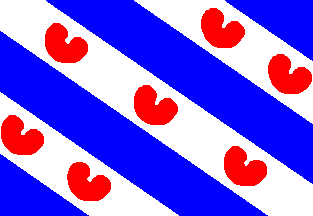
Frisian: language of my ancestors, sibling to English
‘On Language‘ 6/7/06
see www.nbierma.com/language/frisian
With a vague sense of ethnic pride, a vaguer sense that I owed it to my great-grandfather and a complete ignorance of the Frisian language, I attended the 50th and final Frisian worship service in Grand Rapids, Mich., last month.
For me, the service hammered home a key distinction about my own ethnicity. I usually say that my ancestors were Dutch. But my great-grandfather, who immigrated to the U.S. in 1890, might have objected to that claim. Technically, he was Frisian, and for Frisians, that is more than just a technicality.
Friesland is a province of the Netherlands along that country's northern coast, but dating back to the ancient days when it was a vast kingdom and maritime power, it has always been its own country, in a way.
The Frisians are one of the oldest ethnic groups in Europe and one of the most doggedly independent. A famous Frisian slogan is "Frysk en Frij," meaning "Frisian and Free."
The Frisian language also represents a piece of linguistic trivia: Old Frisian was the closest relative of Old English, its sibling in the West Germanic language family. Linguists tend to say that in its earliest days, English used to sound a lot like German. But it's closer to the truth to say that English used to sound a lot like Frisian.
So as a Frisian descendant and an aspiring linguist, I had two good reasons to attend the final Frisian-language worship service in Grand Rapids, where an annual Frisian service has been held since 1957 in an area church.
...

No comments:
Post a Comment